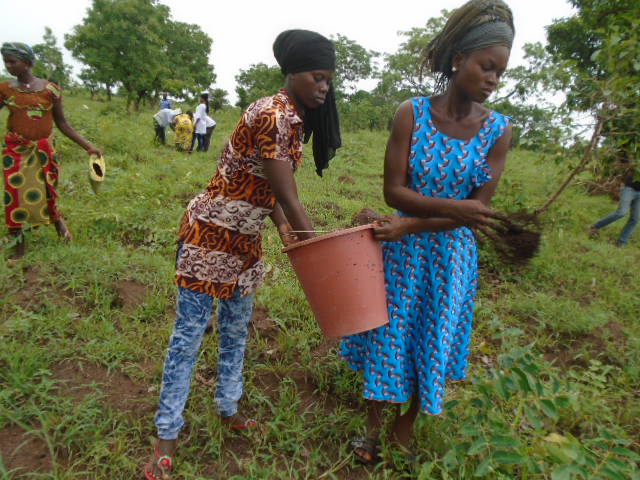Soil conversation is critical to productive and sustainable farming. We have been working to educate and train farmers in best practices to help conserve the soil for sustainable farming. These training include proper soil coverage to preserve moisture, organic matter, preventing soil erosion, building terraces, using contour strip cropping, and alley cropping. We’ve also been helping farmers reduce their dependence on agrochemicals by increasing the use of composting, green manure, mixed cropping, multi-cropping, mulching, crop rotation, and natural control of pests and diseases. These methods help conserve the soil and the environment for future farming, ensuring fertile land for future food production.
During the dry season in Northern Ghana, it is not uncommon to go weeks without rainfall. For farmers who are heavily dependent upon water, that can be devastating. To help alleviate this problem, we, in partnership with ActionAid, have developed water catching and rainwater harvesting systems (e.g. small dams, wells, cisterns, and tanks). In addition to helping build these systems, we have also been advocating for government authorities to encourage them to provide these facilities to the people who need them. We’ve also been helping build and maintain on-farm water preservation systems (guttering, water wells, etc). These systems allow farmers to harvest rainwater to keep their farms moist in the event of rain delays. They also allow farmers to lower the amount of water on the farm if there is too much.


